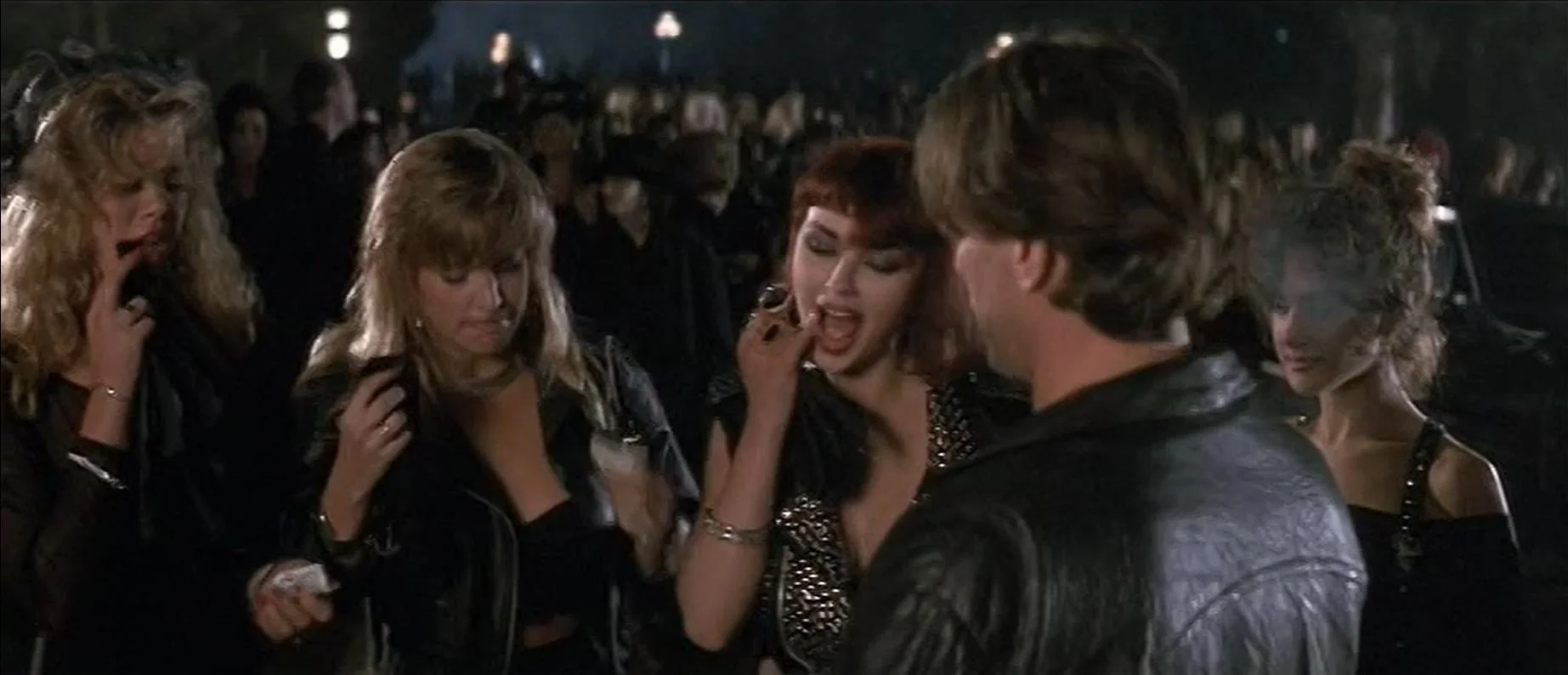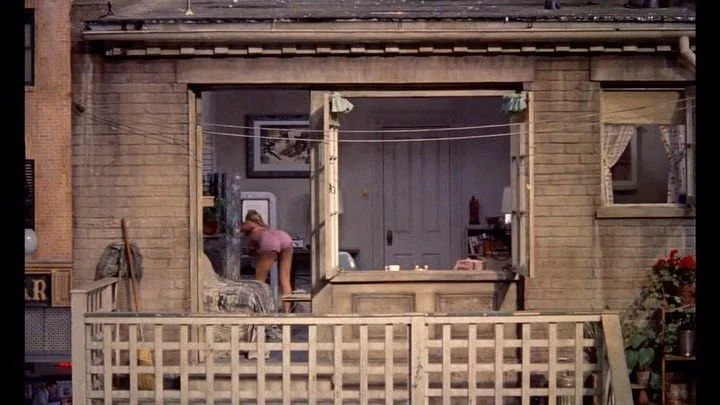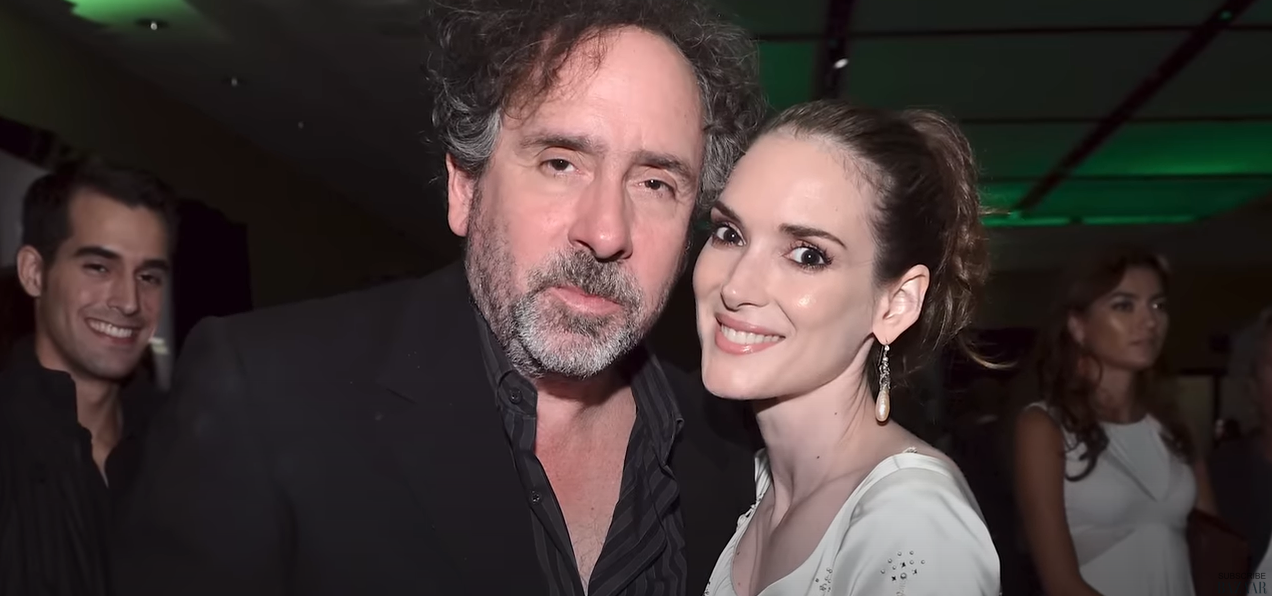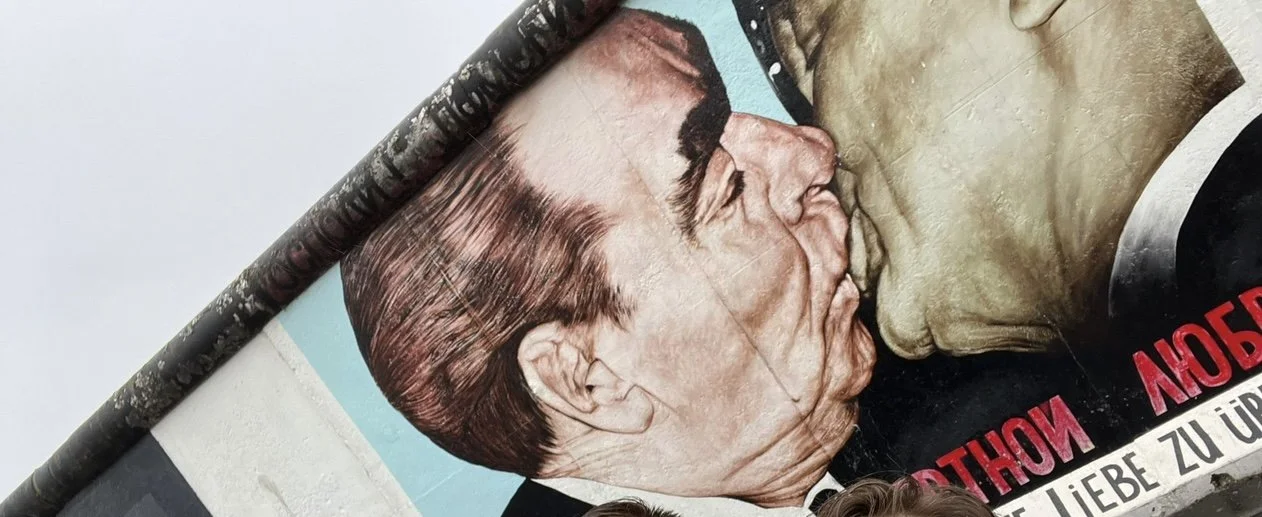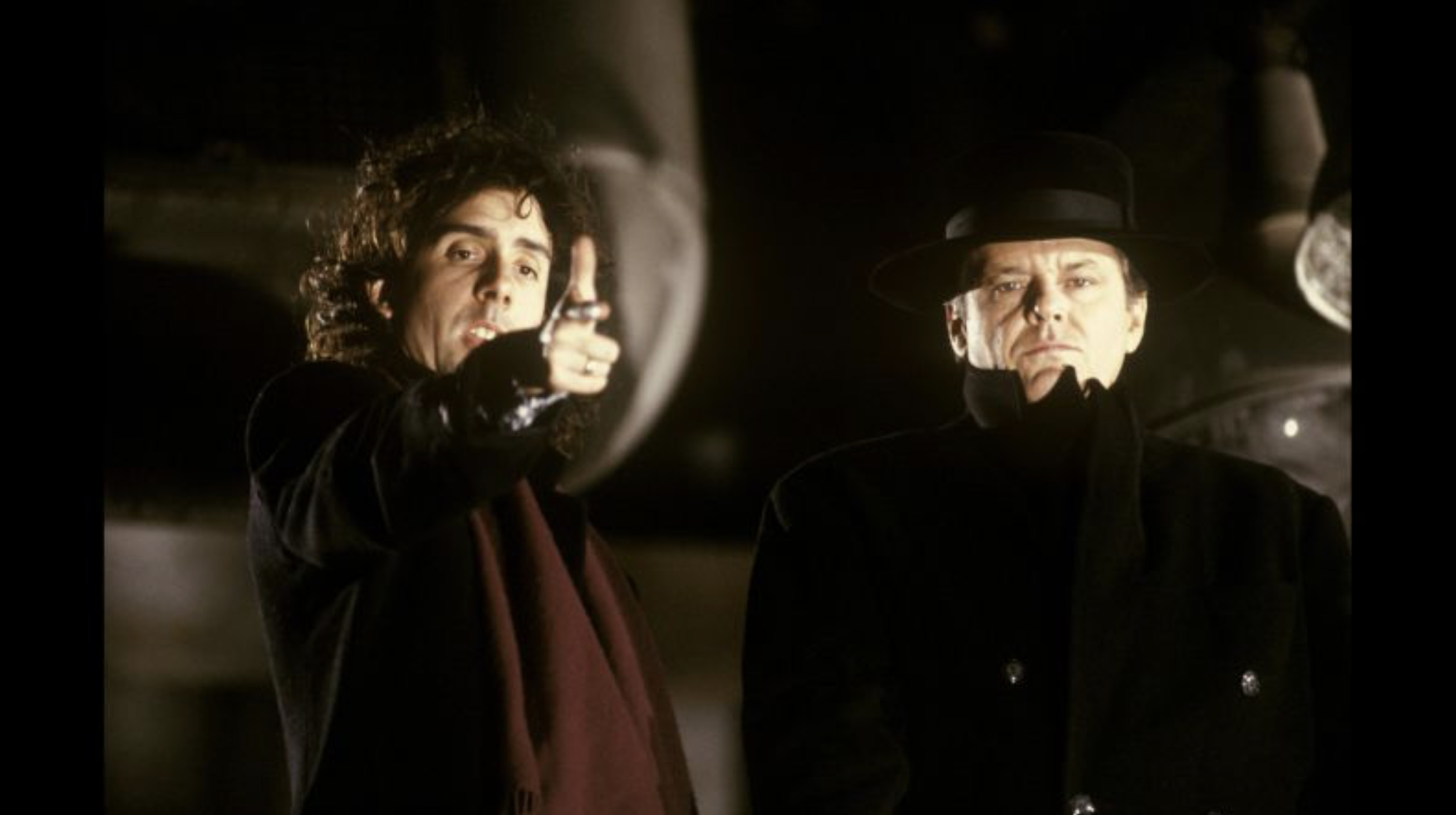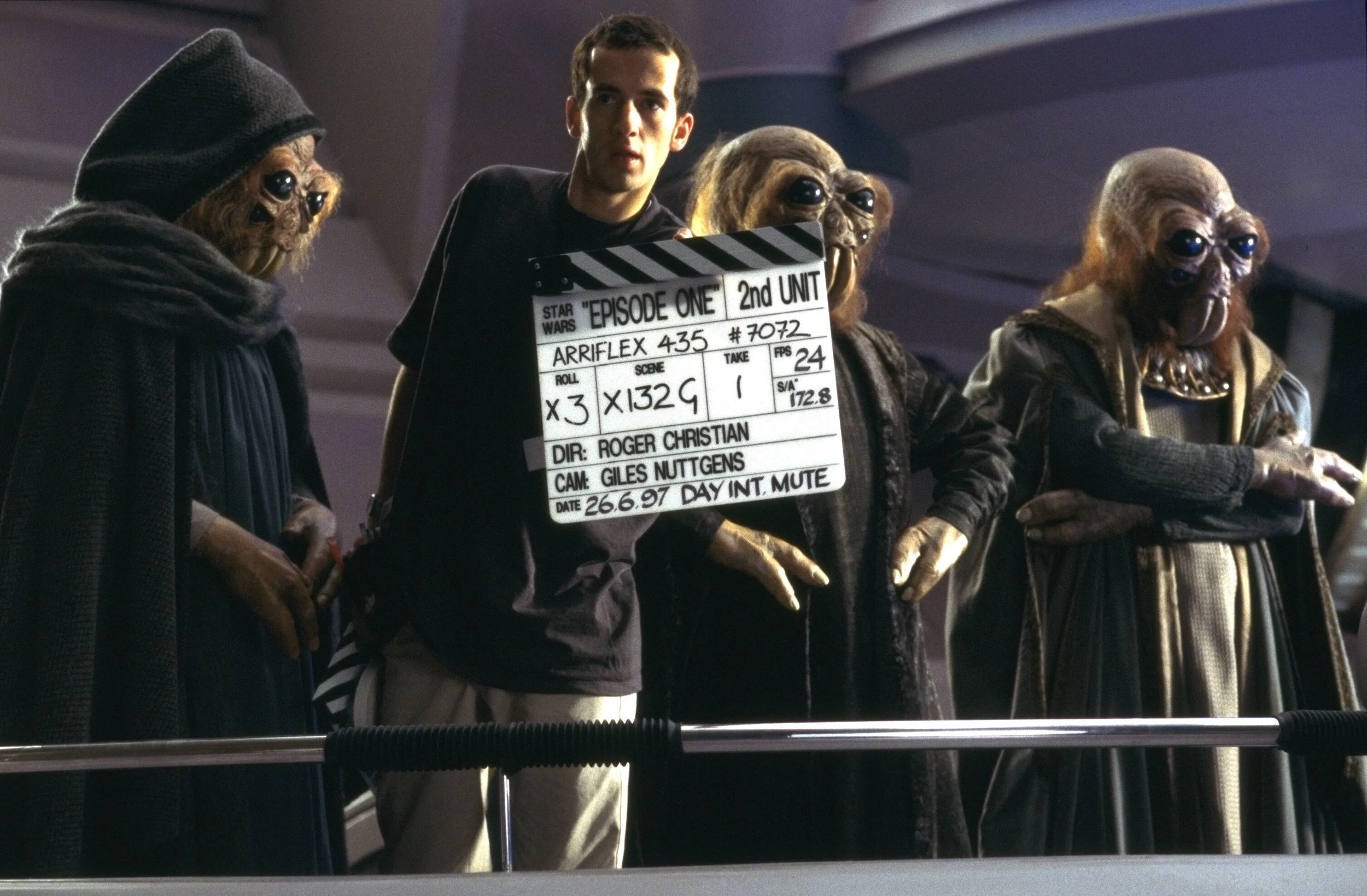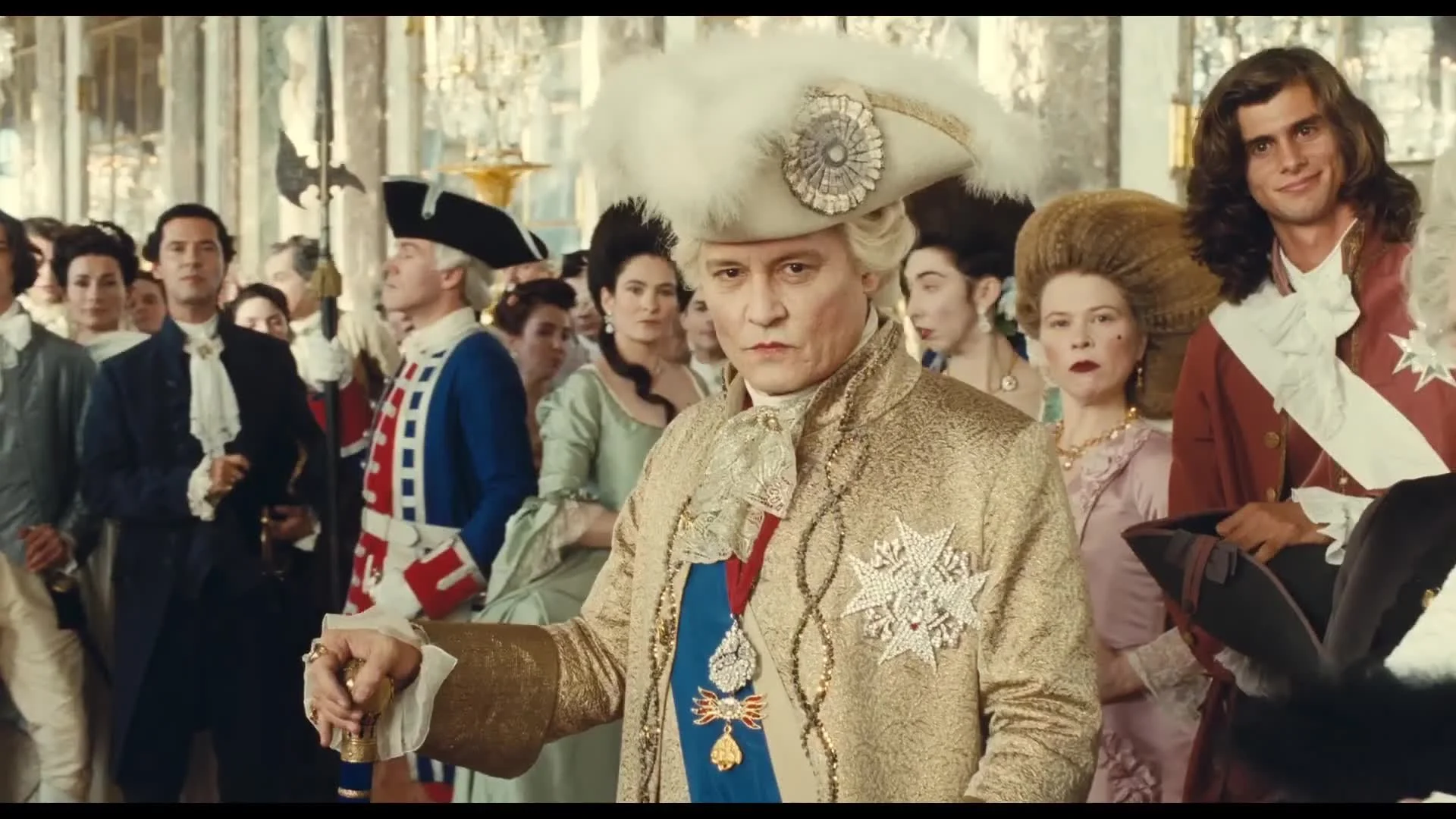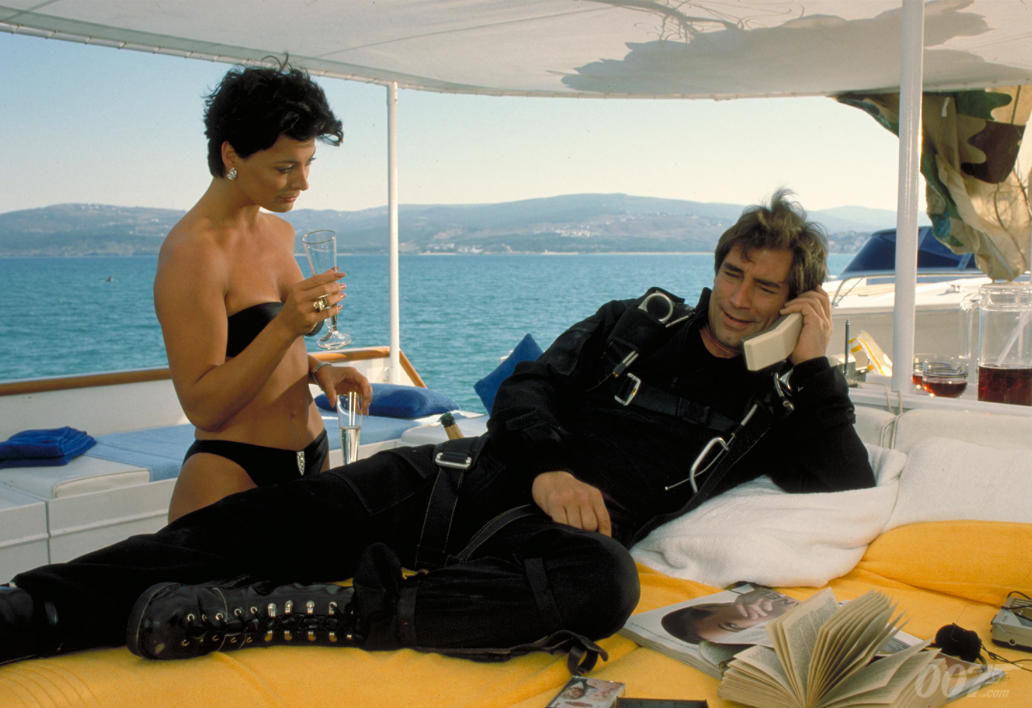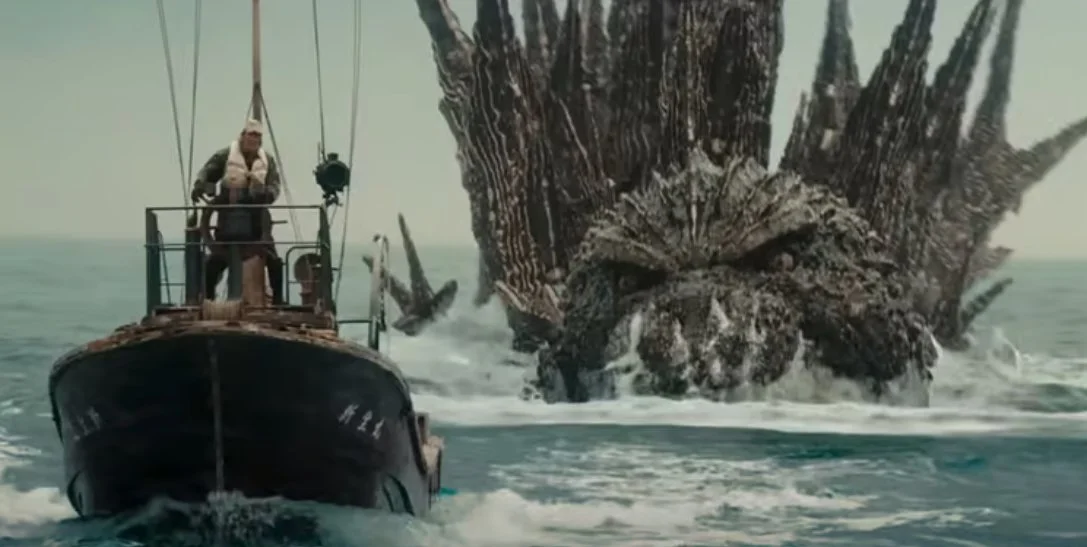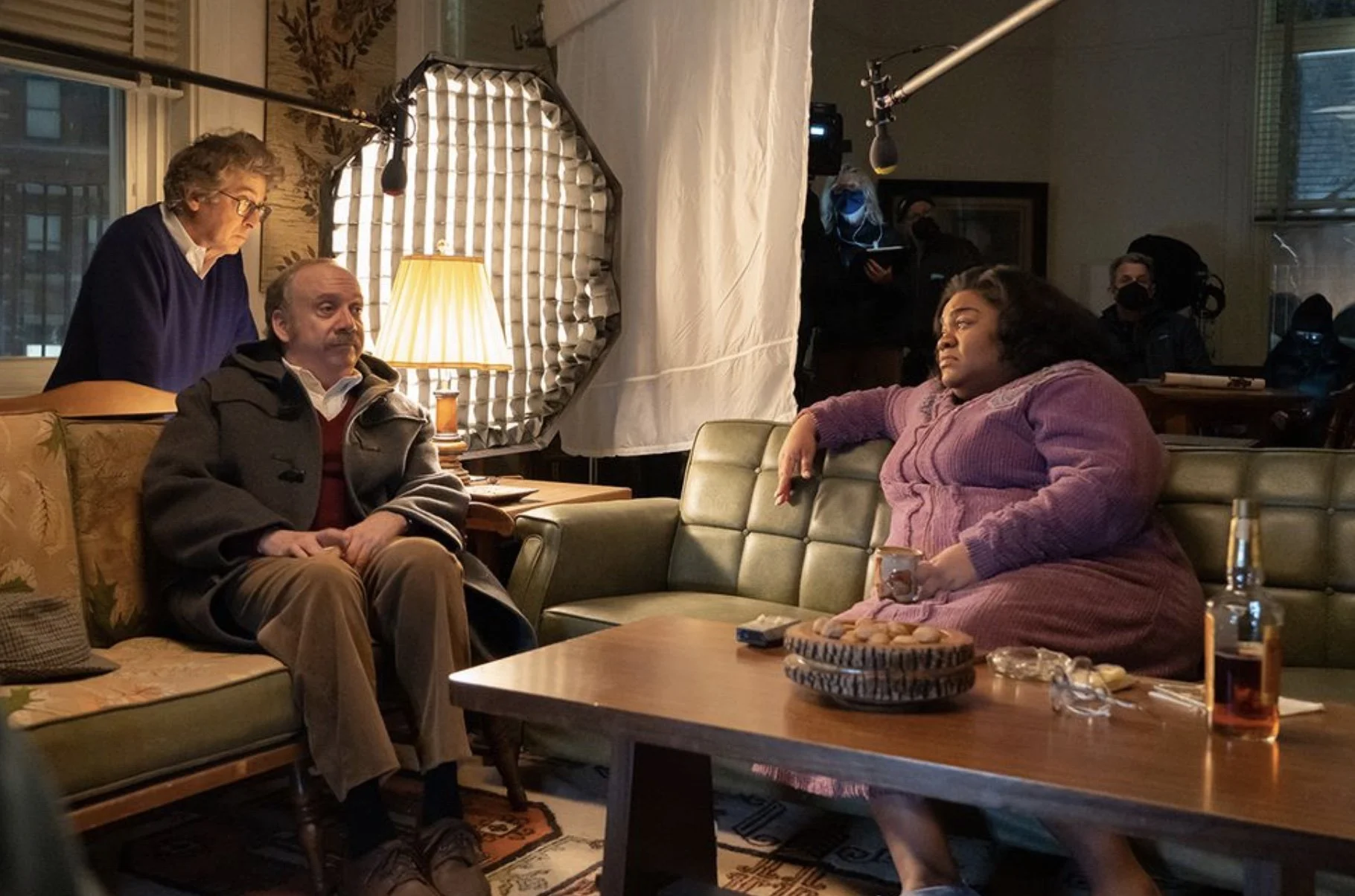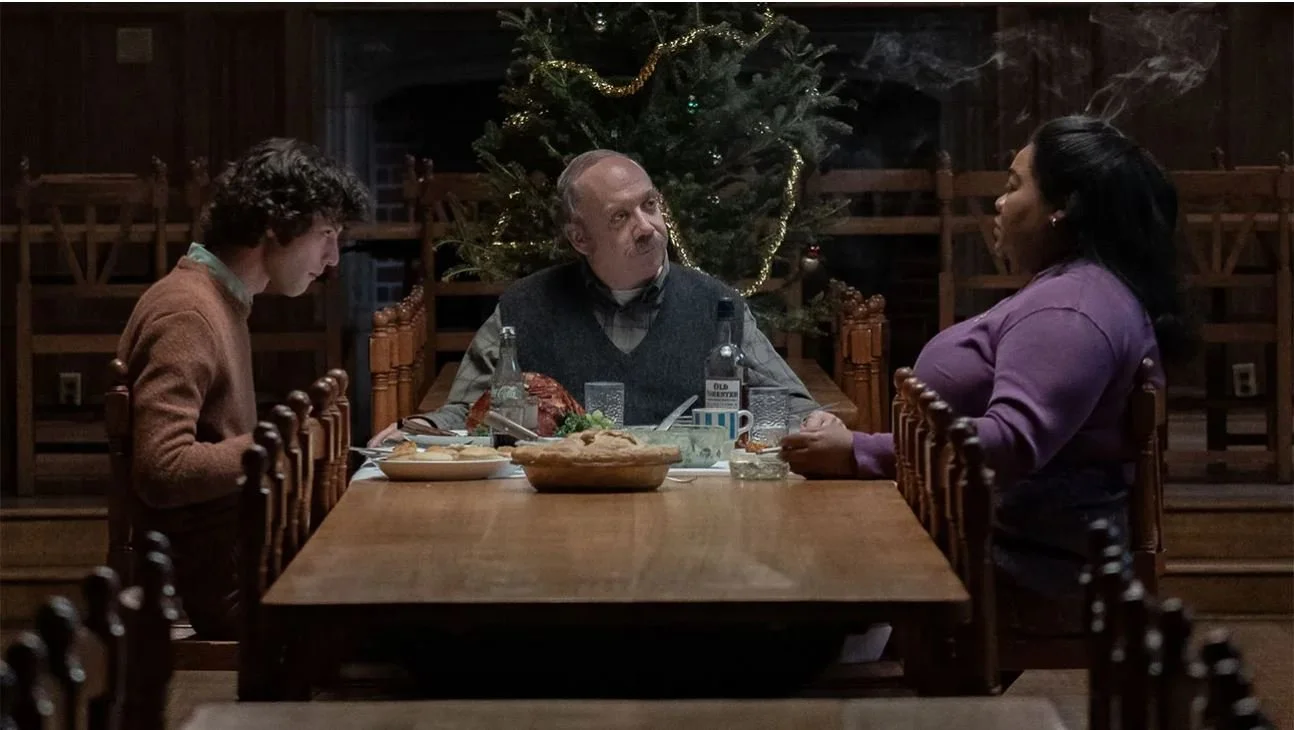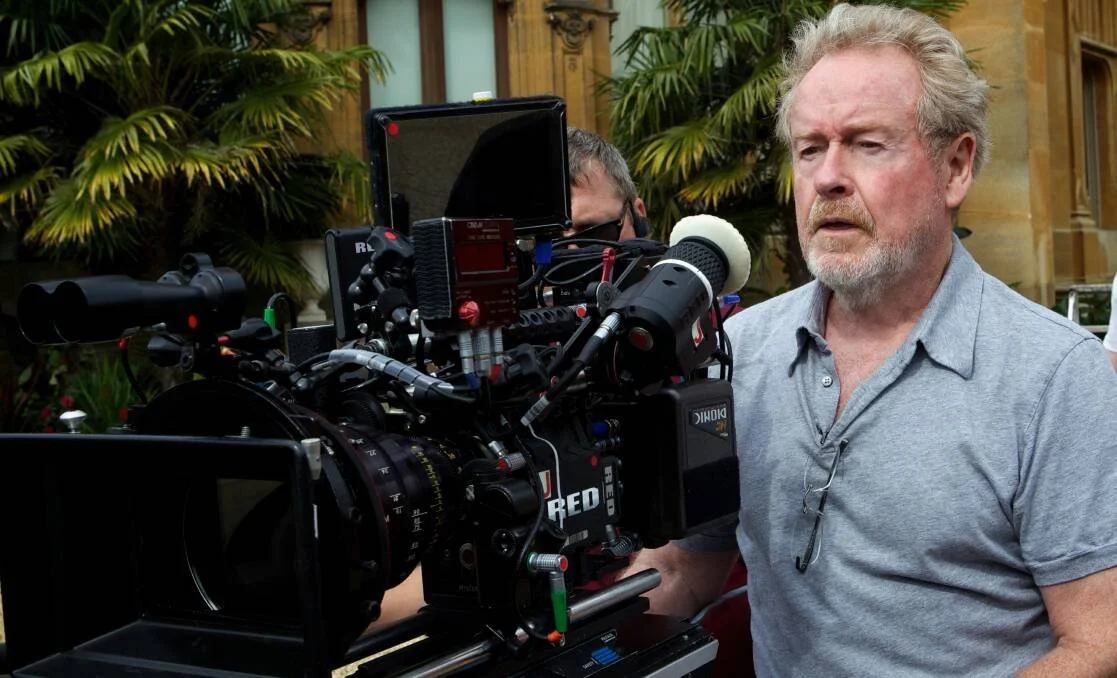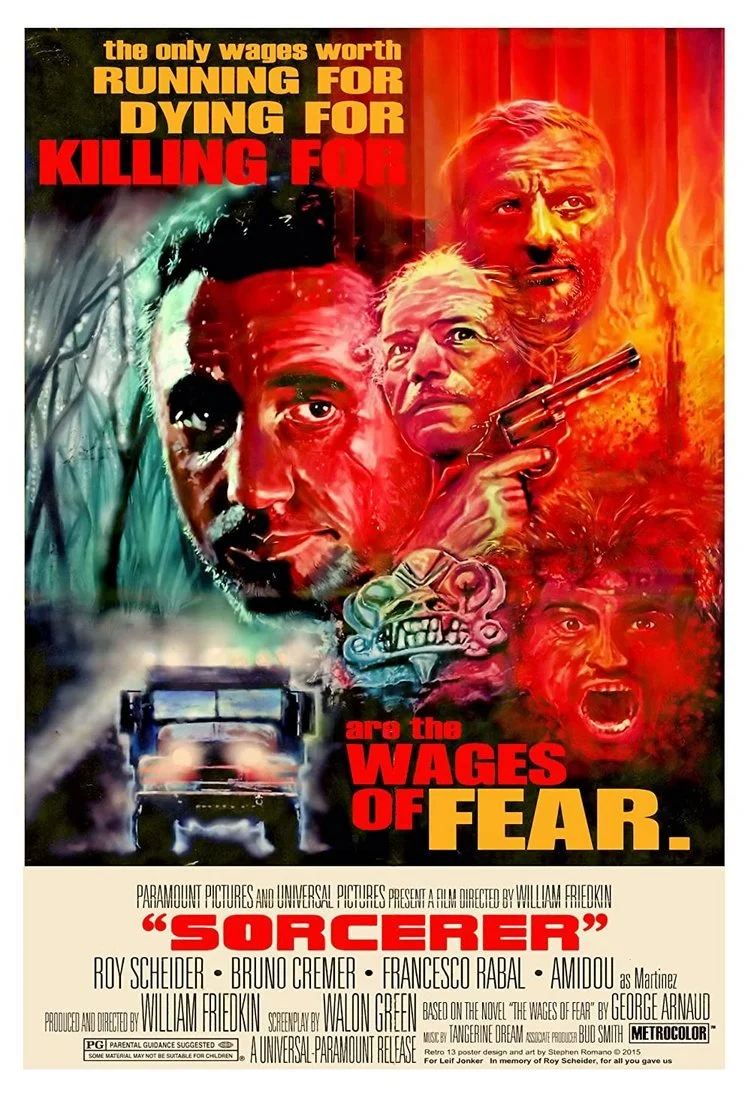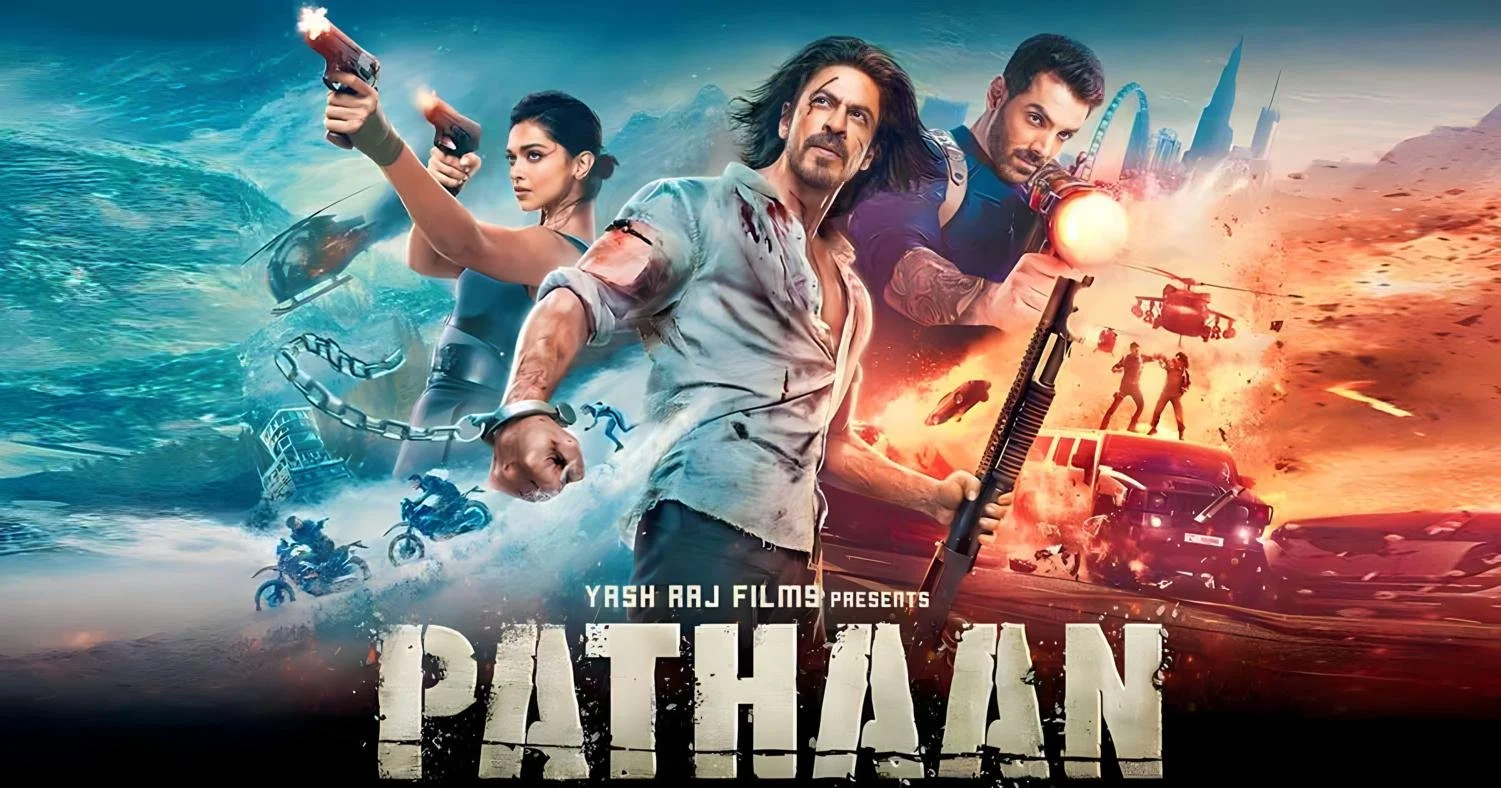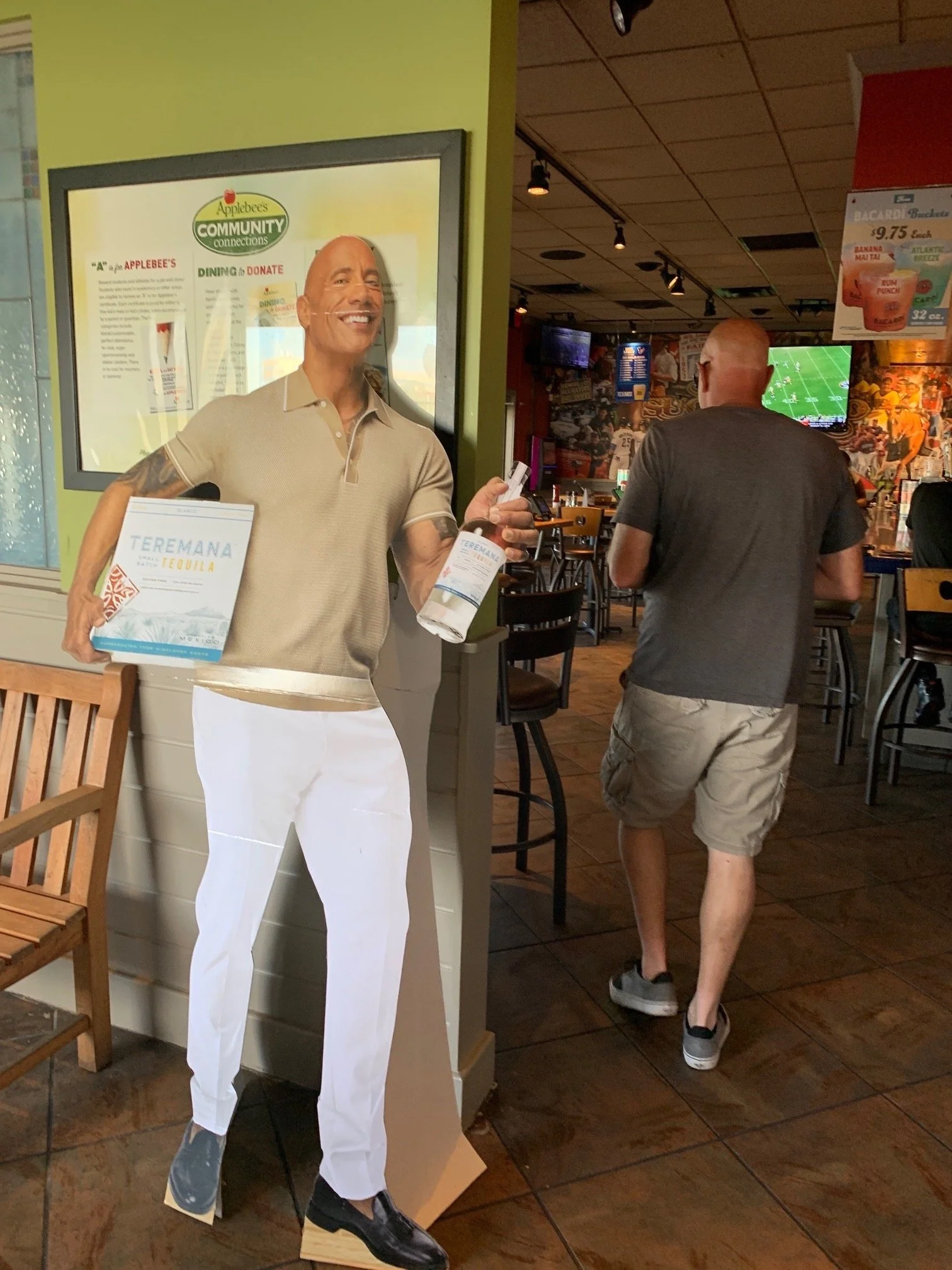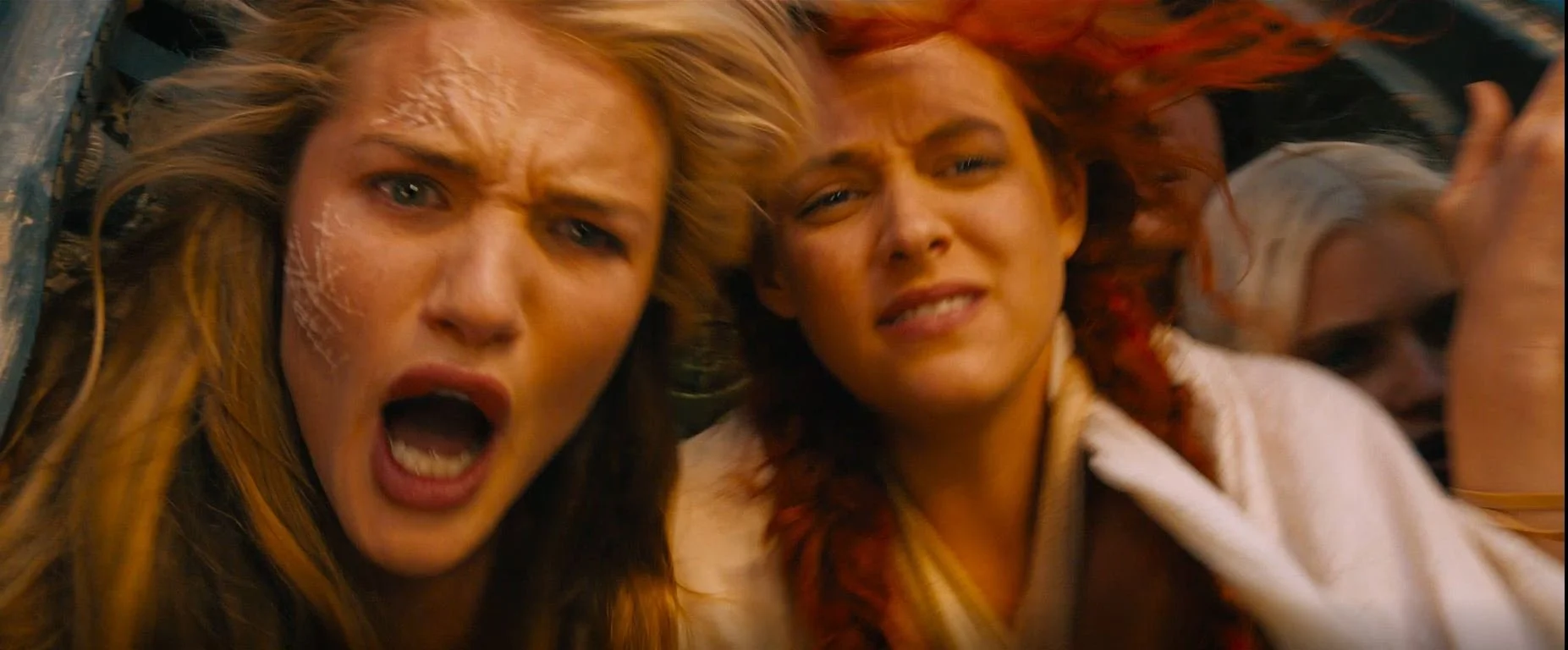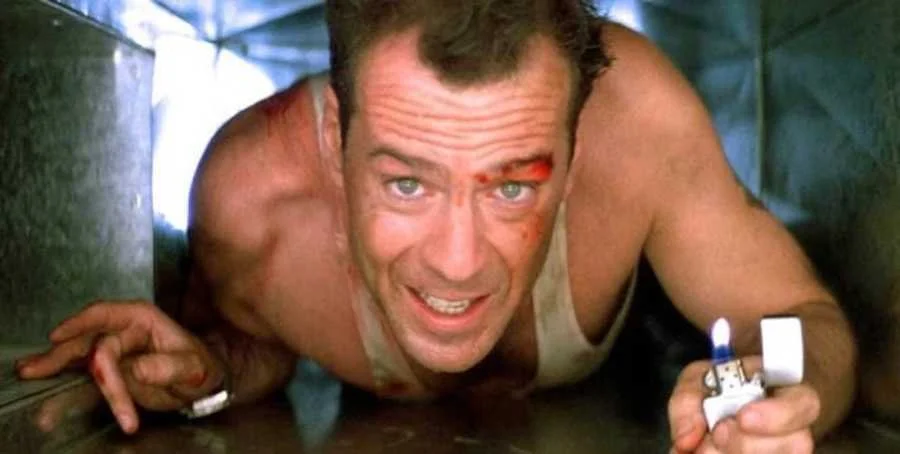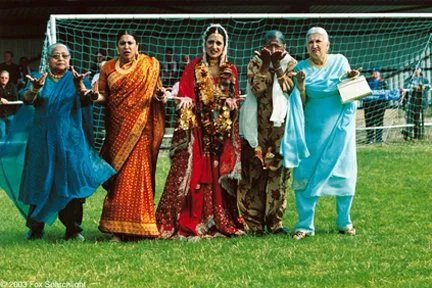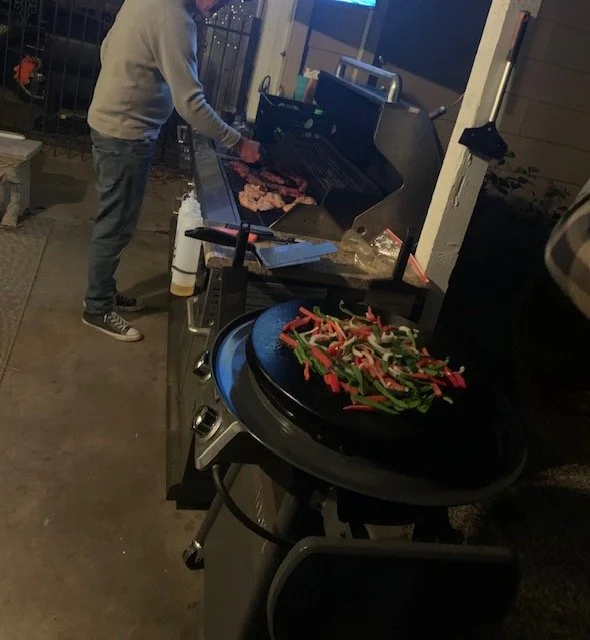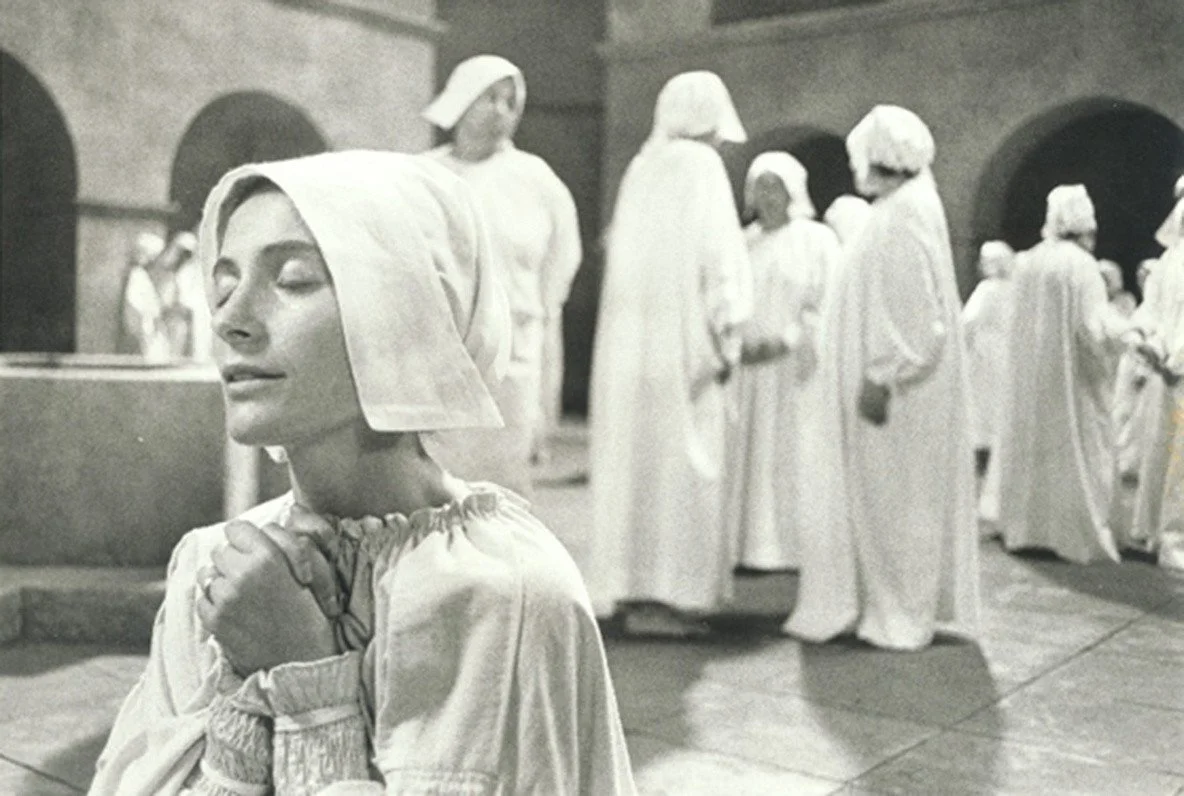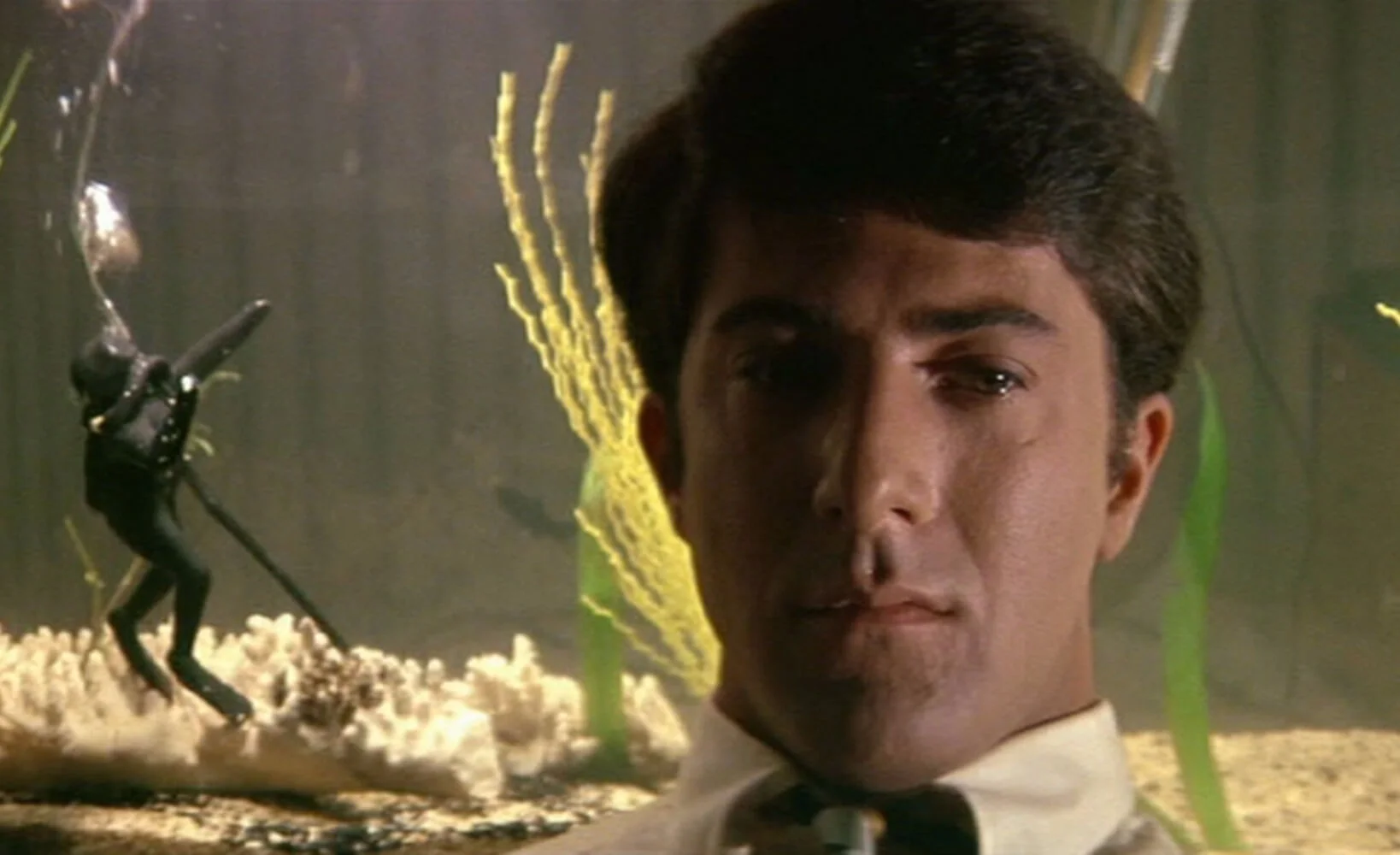Super 70 Podcast
Film is art. Film is history. Film is fun. Join me as we watch an eclectic list of the world's cultural treasures. No film is too obscure or makes too much money. The goal is not to tear down or to rehabilitate - only to understand. Click the title to take you to the podcast on iTunes or head on over to my SoundCloud.
Mega-controversial comedian Andrew Clay Silverstein got his big break on Rodney Dangerfield’s 1988 HBO special and soon thereafter was playing arenas. His comedy album The Diceman Cometh went gold and following a live set on MTV, he was banned from that network. His next album, The Day the Laughter Died, went gold in seven weeks, and eventually went platinum. He then hosted the most controversial episode of SNL ever which led to cast boycotts and huge controversy. 1990 saw the release of this film, earning the infamous Golden Raspberry for the worst film of the year and Clay the worst actor of the year. Join Warren Hayes, Paul Emig and me for a scene by scene retching of what could possibly be the most misogynistic film Hollywood has ever made.
37.2 Kino in Deutschland
If any of you have been following along then you know that my son Luke spent his fall semester in Berlin. In between trips to European capitals, taste testing the continent’s best beer, and understanding the dangers of the AfD, he also took a German Film Class that spanned the 20th Century. He also saw a few flicks over there and we compared notes. This is our conversation.
37.1 Hitch and 2024
After Rear Window, Dave and I decided to find out how long into the night we could go drinking beer, talking about Hitchcock, and discussing his 2024 Letterbxd, David Lynch, Beavers, the nature of God, the duality of man. The meaning of life. Is wrestling fixed? What is Martinizing and why does it only take an hour?
37 Rear Window (1954)
In one of the most magnificent careers in cinema history, Alfred Hitchcock outdid himself with a run from 1951 to 1960 that encapsulated not only some of the best Hollywood films of the decade, but of all time. In the middle of this impressive flex is Hitch’s complex ode to gender roles, gender relationships, and expectations. Hitchcock, who already had gone everywhere and done everything for film, challenged himself by limiting everything except his imagination. Rear Window was shot on one set with minimal actors, and included his lead actor not just staying in one room, but staying in one chair for the entire film. Casting Jimmy Stewart, America’s all town boy, against type as a voyeur, Hitchcock uses a high form of the Kuleshov Effect to tell an insidious tale of murder in the big city. Join Dave Anderson and I as we muse scene by scene through the Master’s use of light, incredible technicolor camera panning, and do I need to mention Grace Kelly, to create a subtext describing the phases, levels, and intricacies of being in love and being human. Along the way we discuss Stewart’s role as the first Redditor, De Palma’s aping of the master, and how even Die Hard rips off Hitchcock.
36.4 Don’t Google ‘Roy Cohn’s Bedroom’
Luke and I start off by discussing Ali Abbassi’s controversial biopic “The Apprentice.” We try to talk about the President Elect’s record as a rapist, his friendship with Roy Cohn, and well... at least we tried. Meander we did through our cinema experiences while Luke is in Deutschland. We discuss what we’ve seen, what we haven’t, and then Luke takes plenty of time scrolling through my Letterbxd to roast my reviews. There must be better ways to spend time with your son than on Zoom talking horror, Steven Seagal, and Golan Globus Cinema, but I don’t know what they are.
36.3 Beetlejuice Squared
You made being a weird girl not just okay but something to celebrate and even kind of cool.
Luke and I start off by discussing Ali Abbassi’s controversial biopic “The Apprentice.” We try to talk about the President Elect’s record as a rapist, his friendship with Roy Cohn, and well... at least we tried. Meander we did through our cinema experiences while Luke is in Deutschland. We discuss what we’ve seen, what we haven’t, and then Luke takes plenty of time scrolling through my Letterbxd to roast my reviews. There must be better ways to spend time with your son than on zoom talking cinema. But I don’t know what they are.
36.2 Joker 2- Wahnsinn Für Zwei
Luke is going to school in Berlin this semester and there’s no good reason why he can’t keep up with the release schedule. In between Brewmaster classes, history classes, and yes, a true to form Deutsche Kino Class, Luke has been streaming Prime and heading down to you guessed it, Berlin Alexanderplatz, or Zoo Station to see what it is the rest of the world says is great... or sucks.
36.1 Batman Schmatman (1989)
Once again we are faced with the fact that sometimes the best conversations are the meandering ones we have after the commentary is over. I asked Warren Hayes and Paul Emig to stay over a little loner, have a couple of beers, and talk about our favorite caped crusader, why comic book films are fading, and why they still enthrall us. But first, David Lynch. And later, the English Patient.
36 Batman (1989)
In one of the bravest acts of Cinema History, Warner Brothers decided to give Tim Burton, a former Disney animator with a whopping two directing credits to his name, the keys to the Batcave. One of Burton’s most controversial decisions, casting comedic actor Michael Keaton as the brooding millionaire Bruce Wayne. The cinema event of the summer, Batman 1989 touched pop culture in a way that exceeded even Richard Donner’s Superman of the previous decade. Launching a franchise that lasted almost a decade, Batman 1989 also launched several other comic book properties hoping to grab hold of a new audience buying an increasing amount of comic books. Much loved by a generation, it is also much maligned by those like me who feel the World’s Greatest Detective needs to be more like Frank Miller and less like Batman ‘66.
35.1 The Phantom Bonus
After we recorded The Phantom Menace Commentary, Warren and Paul and I pontificated on the many reasons the film did not succeed even though it had tons of pluses to it. We discuss the action figure market, the genius of Carrie Fisher, and that thing we all hate with a passion: sand.
35 The Phantom Menace (1999)
After sixteen years of a fanbase growing into adulthood, George Lucas dropped fifty millon dollars of Lucasfilm Limited’s money into the surest bet in Hollywood history: The first film in a new trilogy of Star Wars films. Though distributed by Fox and produced by Rick McCallum, Star Wars, Episode I: The Phantom Menace would be exactly like the first film from 1977. Lucas would have total control over screenplay, production, casting, editing, and marketing. What emerged was the most controversial franchise film in history, a movie that conflicted with Canon, had red herrings, left some audiences confused, some angry, and had the greatest lightsaber duel in history. Twenty-five years later, Warren Hayes, Paul Emig and myself go through The Phantom Menace scene by scene as we lament what could have been and appreciate what we do like. Join us as we watch the Phantom Menace and discuss all thing Lucas: including racism, bad acting, our total respect for Ahmed Best, and how much all of us miss Marcia Lucas.
34.12 Hannibal & Hannibal
As will be explained in the subsequent conversation, Luke and I came across two very different films called Hannibal and decided to do a double feature in a day. The result... was very dour.
34.11 Wild Movie Weekend
Actress, screenwriter, and director Maïwenn rolled the dice in 2022 and recruited Johnny Depp to play the supporting role in her Barry Lyndon-like period drama Jeanne du Barry. Though the film focuses on the rise and fall of a famous courtesan of Louis XV, Depp overpowers the film through his charm and charisma. Controversially opening at Cannes in 2023, Jeanne du Barry struggled to find a North American distributer – some say because of Depp’s recent unpleasant public image. For his part, Depp opined in an interview released with the film that he found a connection with the famous monarch son of the Sun King. They both lived in a bubble, he mentioned, and going outside was weird.
We had a helluva weekend folks. Friday night, the boy and an caught The Phantom Menace for the 25th anniversary re-release. Saturday, we caught Jeanne du Barry with Johnny Depp. Starring Johnny Depp, I mean we didn’t go see the movie with him. And Sunday we woke up and caught the first screening of The Fall Guy. Join Luke and I as we try to navigate our feelings around such an emotionally complicated weekend.
34.10 The james Bond Theme Song Bracket
Jack White and Alicia Keyes made cinema history when they collaborated on what White called “the most divisive thing I’ve ever done,” the theme song to Quantum of Solace titled “Another Way to Die.” EON Productions originally tried to sign Amy Winehouse, but her death opened the door to White who saw a shrinking schedule as a way to capitalize on doing something completely original. Keeping to a musical style dating back to Tina Turner’s incredible title song to “Goldeneye,” White brought in Alicia Keyes to add an R and B flavor to his alternative bent. The result, “Another Way to Die” has become a James Bond Theme song you either love or hate. Like it or not, the song remains the only duet in the James Bond catalogue to describe what it must be like for a secret agent to deal with the immense pressures of life undercover. With White’s guitar and Keyes’ piano leading a cacophony of sound, Another Way to Die has become a powerhouse anthem of fear and anxiety – definitely an unusual way of thinking about cinema’s most famous spy.
34.9 The james Bond Bracket
Timothy Dalton was approached to take over as James Bond from Sean Connery when he left the series in 1968. Dalton, about 24 at the time, thought he was too young to play Bond and never considered the offer seriously. Twenty years later he was the right age when they approached him to replace Roger Moore. Dalton did two films with veteran Bond director John Glen who as cinematographer captured the masterful shot of the Union Jack parachute opening in The Spy Who Loved Me (1976). Their two films, The Living Daylights (1987) and License to Kill (1989) were largely panned at the time as low-level efforts. Looking back, these films are being re-assessed as important stories representing western fears of the Cold War and the Drug War in the 1980’s.
A couple of months ago, Luke and I had a short discussion on March Madness. I showed him an NCAA bracket and he instantly said, ‘we should do one for James Bond.’ I duly put one together, grouping the bonds together and facing them off basically using Connery, Dalton, and Brosnan on one side and Moore and Craig on the other. Then we went to it, and the results may surprise you.
34.8 You Did NAZI This Episode Coming
My son took a course in Fascist Cinema in college. I was aware of his workload since that was an area of my study in grad school. Join us as we talked about the fucked-up values of National Socialist films and why their beauty makes them so dangerous. Be prepared for an opening statement with a lot of requests and qualifiers.
34.7 Shah Rukh Khan & Bollywood in 2023
One year ago, I saw a trailer on YouTube, showed it to my son, and he said hell yes! Let’s see Pathaan! We were blown away by this action powerhouse with Hindustan’s most famous actor Shah Ruh Khan and Deepika Padukone. Since then we’ve seen a handful of Bollywood films, all from 2023, and we were greatly impressed with what we saw.
34.6 2023 A Year In Review
Dave and I go over the biggest releases in 2023 and hit our letterbxd to see what worked, what didn’t, and why we keep going back to the theatre. We also discuss the most important topics of the day, such as watching Fincher’s The Killer with no sound, the merits of Friedkin, and whose Letterbxd is more impressive.
34.5 Godzilla And Trauma
Takeshi Yamazaki shook the American movie market last month when Godzilla Minus One became the highest earning Japanese film in history. The lizard has always been popular but placed against the backdrop of the tragedy of the Second World War and entwined with the lives of survivors Noriko and Koichi, Godzilla Minus One captures the heart as well as the eyes. Luke and I sit down and discuss the edge of your seat drama, the eye-popping special effects, and the metaphor of it all.
34.4 The Holdovers Holiday Special part Deux
My good friend Dave Anderson went to go see the Holdovers on my recommendation and he listened to my last podcast episode with great envy. Jealous that he could not participate, he texted me, begged me, pleaded with me, to come back into the Hacienda to discuss what must be the first Christmas Classic in 20 years, and what may be the last one in a very long time.
34.3 The Holdovers Holiday Special
Alexander Payne had not made a single film that I like until I went to see The Holdovers for Tightwad Tuesday. Masked by the period piece setting, the story is more about how broken people find peace than it’s outward image as a Christmas film. Teaming up with Paul Giamatti and using David Hemingson’s first script for the big screen, Payne avoids the rom-com holiday fare by pitting the veteran Giamatti’s cantankerous private school professor against first time actor Dominc Sessa, an actor literally from the drama class at the school used as a set. Balancing the two is Da’Vine Joy Randolf, an inspired casting decision who turns in a revelatory performance. Join my son Luke and I as we discuss this surprising holiday hit that has a chance to become a drama to come back to every December.
34.2 Ridley and Napoleon
My son Luke and I saw Napoleon the day after Thanksgiving and we came back immediately and turned the mikes on to talk about Ridley Scott’s latest epic. We run through the scenes, the history behind the great man (Napoleon, not Ridley) and we contrast this epic from the others it deserves to be ranked with. Join us as we talk about Scott’s unbelievable vision from the Golden Age of Hollywood, his previous historical epic, and why we’re still talking about Napoleon and Ridley today.
34.1 Freakin’ Friedkin!
After wrapping up the Sorcerer commentary, Dave and I sat around, consumed mass quantities, and as much as we tried to focus on Hurricane Billy Friedkin and his work, we quickly descended into how we consume cinema, soundtracks, and Friedkin’s fellow auteurs. We go all over the place but you can follow along.
34 Sorcerer (1977)
Hot off the success of the ninth highest grossing movie of all time, William Friedkin abandoned a film about the Bermuda Triangle to focus on a re-interpretation of the George Arnaud novel “The Wages of Fear.” Every possible thing went wrong during every stage of production. Stars dropped out. The budget ballooned. Friedkin fired needed personnel. The shoot stretched past 90 days. Largely ignored in the wake of the release of Star Wars a month earlier, Sorcerer has in the decades since been re-appraised as one of Friedkin’s best films. Ostensibly about four criminals in hiding delivering unstable dynamite to an oil well on fire, Friedkin uses the parable to convey how the different nations of the world have to join together to get the job done... or die in the process. Join me and Dave Anderson as we break down the rhyme and reason of the film that derailed “Hurricane Billy’s” career.
33.2 The Specialist, Hanna Arendt, and the Banality of Evil
I sent my friend Dave Kinnaman Hanna Arendt’s famous book Eichmann in Jerusalem: A Study in the Banality of Evil. Dave became so engrossed in Arendt’s history of the Holocaust and her philosophy of murder that I then sent him an Israeli documentary of the Eichmann’s trial called The Specialist by director Eyal Sivan. Using original footage of the trial, Sivan reconstructs Arendt’s arguments of why the trial was a failure though it still rendered justice, and through her work she constructed a theory of how the Shoah occurred. Join Dave and I as we sift through the darkest part of the 20th Century using Sivan’s sly masterpiece of truth and Arendt’s arresting idea that the worst mass murderers use droll paperwork instead of bullets.
33.1 ANZAC Cinema
A few months ago I asked a friend of mine, Paul Emig to pick a movie, any movie, for the Super 70 Podcast. He chose Peter Jackson’s Braindead and needless to say this was not my cup of tea. But we don’t care about bad taste at the Super 70 Podcast. We don’t care if it has a budget of twenty thousand dollars or two hundred million, if it’s shot on Super 8, or 70 millimeter. All we care about, if I may be allowed to paraphrase Russel Crowe, is if you are entertained. Also for the previous year, Ben Waterhouse has been begging me to watch the same film. Now what are the chances that I would find two people on this planet that both love Braindead? While we dissect the work of Peter Jackson we digress through his work to the other towers of ANZAC cinema, reach around the edges of the Uruk-Hai and debate the merits of The Beatles, Greta Van Fleet, and Christine McVie.
33 Braindead (1987)
Peter Jackson had already spent most of his own money developing his third film Braindead when his producer closed a deal to bring in a quarter million dollars to finish the project. Avalon Studios of Wellington, New Zealand had to spend thousands of dollars of unforeseen expenses to clean the floors of their office and lots when Jackson and his WETA crew blasted the sets with hundreds of gallons of fake blood. Seen as one film in a movement that included Sam Raimi and countless other copycats, Jackson deployed his technical skill as a cameraman, his eye for detail in production design, and a seeming ability to find humor in the things that make the rest of us vomit. The result, Braindead, a film that sent Jackson to Hollywood and on track to be one of the ten most successful directors in cinema history.
32.1 Film, Literature, and Kinnaman
Tim O’Brien, native of Minnesota, Texas resident, and professor of literature, is also a Vietnam veteran who has published multiple works about the war. One of them, The Things They Carried, has proved so popular as to be raided by Hollywood for both inspiration for fictional films and sources for documentaries. You can see him in Ken Burn’s recent PBS work The Vietnam War. A unit in O’Brien’s division had perpetrated the My Lai Massacre the year before his deployment to the same area. “We all wondered why the place was so hostile.” O’Brien’s work is pivotal to not just understanding the American experience in Vietnam, but how we view veterans through film.
I keep in touch with my friend Dave Kinnaman over Zoom. We talk carpentry, history, and literature. Things got pretty wild when I dove in deep discussing two famous documentaries: Ken Burns’ Vietnam and The Last Days of Vietnam on PBS. Both of these documentaries were outstanding efforts to understand and convey the toxic American experience in Asia. Unfortunately, most of this conversation was lost which we recognize now days as a part of the Zoom experience. Also unfortunately, Dave and I digressed greatly in the making of this episode and our conversation we covered so many topics that were, well, off topic that I had to cut them out. In this episode we discuss the glory of HBOMax, Peter Jackson and how literature finds itself on film.
32 Pathaan (2023)
Shah Rukh Kahn was already one of the biggest stars in the world when he returned after a four-year hiatus to take the lead in Pathaan, the fourth film in Yash Raj Films’s Spy Universe. Ostensibly about a retired Indian Intelligence agent teaming up with a Pakistani spy to stop a rogue group from carrying out a mass casualty event, Pathaan quickly reveals itself to be a deeper discussion of subcontinent politics. Along the way are direct lifts from Captain America: Winter Soldier, three Mission Impossible movies, and includes elements from most James Bond films and the entire Fast and Furious franchise. The result is an action packed hundred-million-dollar blockbuster that transcends corn, camp, and pastiche to be quite possibly the greatest action film of all time. Join me and my son Luke as we try to contain our excitement scene by scene through “King” Kahn’s Bollywood action masterpiece which begs the question, is Tom Cruise the American Shah Rukh Kahn?
31.1 All Quiet with Dave Kinnaman
Dave Kinnaman and I used to teach across the hall from one another. He taught American History, which I thought was boring. I taught World History, which he really never gave a shit about. I was a conservative Republican. He was a liberal Democrat. We were fast friends. We believed in our Republic for which it stands, listened to American Hardcore Punk, and incessantly read history and literature. Dave and I reconnected recently, and I asked him a ton of questions about All Quiet on the Western Front by Erich Marie Remarque. The conversation digressed and drifted through the sands of time as we discussed the First World War, an unreleased documentary on Albert Speer, and why this German anti-war film from Netflix was a mixed message in today’s time.
31 code 46 (2003)
“I don’t particularly like the idea that there’s an arc to the story and that therefore in this scene you have to convey this bit of information or emotion. I like more the feeling that, of course, there is a shape to the story, but that each scene should feel right, should be true at the moment, and that gradually you accumulate these moments of truth until you get enough of them together that it becomes a story that’s interesting.
Michael Winterbottom might be the Rainer Werner Fassbinder of the UK with a shocking 48 directing credits, both in film and television, since 1988. Known for jumping from genre to genre, he landed in Science Fiction in 2003 when he directed Tim Robbins and Samantha Morton in Code 46. In a future in which the haves and the have-nots are starkly divided, Code 46 paints a world in which DNA is everything and the gene pool is smaller due to the enormous explosion of surrogate in-vitro technology. What happens when you share part of your DNA with someone you’re in love with? Let’s find out and go scene by scene as we explore themes on sexuality, morality, gender, and who is always left holding the bag.
S70P sPECIAL REPORT SIGHT AND SOUND 100 WITH DAVE ANDERSON
“To a large degree these types of things are inherently silly. I think the Sight and Sound poll is analogous to the Oscars. These are subjective judgements so creating this cannon via this list is inherently false because someone out there thinks RAD is the greatest film of all time. We know that it exists. But Roger Ebert said before he passed that this poll was the only one to take seriously. This is the one people go back to and give serious consideration to.”
Dave Anderson sat down with me after FURY ROAD and we discussed the future, fascism, and femininity. Then we went through the Sight and Sound 100 list to sort out what was interesting, what was surprising, and what was a tall, stinking pile of Jeanne Dielman.
S70P EP30 mAD MAX: FURY ROAD
Australian Auteur George Miller, MD, had already cranked out ten films and earned the top golden man for animation when Warner Brothers finally approved his 3,500 storyboarded idea for a fourth Mad Max Franchise installment. At the age of 70, Miller took almost a thousand cast and crew members to the middle of the Namibian desert for over a year to create what has been called the greatest action film ever made. Behind the scenes was a twenty-year battle between two studios, several heads of production, and three huge movie stars to create what we see on the surface to be a film about our global fears regarding survival, psychosis, and the ever-disappearing access to the elements that keep us alive. After the dust settled, and Fury Road took home an astonishing six Oscars from ten nominations, the critics and fans pointed to the real story of Fury Road: the warning of dictatorship, megalomania, and the power of femininity that could save us all. Witness me and Dave Anderson as we go scene by scene through Fury Road and argue the finer points of Valhalla, Gas Town, and the Vuvalini.
S70P SPECIAL REPORT BRUCE WILLIS CELEBRATION
Despite the heavy editing I had to do last time, I went back to Dave’s with my recording equipment and mic'd up on his back porch again. We seemed to catch Intercontinental on an off night, and the neighbor's dogs seemed to be on melatonin, and Dave and I managed to show one of our favorite actors some respect. Join us as we go through the impressive career of Bruce Willis, American Wunderkind who managed to turn his television career into an impressive melee into action, comedy, and dare I say…art?
S70P EP29 BEND IT LIKE BECKHAM
British Director Gurninder Chadha dominated the UK theaters for three weeks in 2002 with a story about an Indian girl who just wanted to play soccer. When the audience turned out, though, they saw a multi-layered critique of modern British society that included sexism, racism, and clashing culture. Join me as we go scene by scene to see how clandestinely Chadha discusses these topics using clever iconography and metaphor in what is one of the most important films about immigration, assimilation, and aloo gobi.
S70P SPECIAL REPORT - DECADES REMATCH WITH DAVE ANDERSON
Once upon a time I bet any year of film in the 1980’s would beat any film from any other year in any other decade. I flippantly told Dave 1984 would beat 1924, 1934 and do on. And he roundly proved me wrong. I wanted a rematch, and again chose 1987 out of a hat. That year may flip both of our points of view. By the time the podcast is over we’ll take a huge deep dive into our Letterboxd accounts, finally spend an adequate amount of time on the amazing October of 2021, and we breakdown our love of cinema and compare the size of our…screens.
S70P SPECIAL REPORT - ON GODARD
Ok, fanboys and girls, what we have here is two recordings. The first recording is my son and I after we recorded the Breathless podcast chatting about Godard. That’s about 20 minutes. And the second recording is me and Dave Anderson chatting about Godard as well. I went over to his house and miked his back yard so we could smoke outside and watch the Astros lose and well, that pretty much dictated how the recording went. We also jumped into Communist Ideology, the amazing Cinema of October of 2020, James Bond, and Lady Gaga’s stunning debut into modern Kino.
S70P SPECIAL REPORT W/ TERESA VAN HOY
Last episode I asked Dr. Teresa Van Hoy from St. Mary’s University in San Antonio, Texas, to go scene by scene with me through Maria Louise Bemberg’s Immortal story about Sor Juana Ines de la Cruz titled “I the Worst of All.” We had such a stimulating conversation I asked her back for a couple of hours so we could discuss important topics as racism and John Ford’s The Searchers, Confederates in film and in stature, and being good Texans we take a deep dive into Mexican and Texas history and film.
S70P EP28 I THE WORST OF ALL
Maria Louisa Bemberg, the granddaughter of German immigrants to Argentina, was 48 years old and the mother of four when she moved from Franco’s Spain back to Peronist Argentina to pursue a film career. At 68, she moved her critical eye to the Church of New Spain when she directed I, the Worst of All. A compelling true story of a seventeenth century nun in the convent of St. Gerome outside Mexico City, the film explores the effect of misogyny and jingoism upon the lives of genuinely good natured, intelligent, and faithful women who see knowledge and God as synonymous. This world view crashes down when a new Viceroy comes to the new world and challenges the status quo of the Bishop of Puebla, the ecclesiastical authority in New Spain. Caught in a political trap that could cost her a trial by the Inquisition, Sor Juana uses her wits to try to survive in a man’s world. Bemberg’s focus is of course women’s rights but along the way we see shades of the authoritarianism Bemberg herself was subjected to. Joining me on this episode is Dr. Teresa Van Hoy of St. Mary’s University, San Antonio.
S70P sPECIAL REPORT WITH FILM IS LIT
Katsushiro Otomo’s Akira Commentarycast guest starring Laura Seiling and Danny Gaylord from the Film is Lit Podcast and their friend and self appointed Manga enthusiast Ryan Burns was a blast. We had so much fun doing that we decided to do this special report in which we wander through discussion of psychology and Akira, race and Ghost in the Shell, misogyny and Blue is the Warmest Color; we discuss Dune probably too much and we end by pondering what is our Rushmore of literature?
S70P EP27 AKIRA
Katsuhiro Otomo was 34 years old and had only directed a short film when he dished out the most important Japanese anime film of all time. Based on his own massively popular Manga, AKIRA takes western influences and filters them through eastern experiences. Join Laura Seiling, Danny Gaylord, and Ryan Burns from the Film is Lit Podcast as we go scene by scene through AKIRA and discuss the influence of biker gangs, the trauma of growing up after a nuclear holocaust, and the insufferable torment of adolescent angst.
S70P SPECIAL REPORT WITH MIKE WHITE
Mike White of the Projection Booth Podcast was nice enough to sit for a Special Report for the Super 70 Podcast. We discuss the career and possible future of Bruce Lee, the importance of Cinema in our lives, and I ask him when the hell does he have time to push out three hour episodes every week on the Projection Booth?
S70P EP26 ENTER THE DRAGON
“A good fight should be like a small play, but played seriously. A good martial artist does not become tense, but ready. Not thinking, yet not dreaming. Ready for whatever may come. When the opponent expands, I contract. When he contracts, I expand. And when there is an opportunity, I do not hit. It hits all by itself.”
Martial artist and Hollywood actor Bruce Lee passed away a mere month before the release of his breakthrough Gung Fu film Enter the Dragon. Easily dismissed as a remake of Doctor No that rehashed a famous scene from Orson Welles’ The Lady From Shanghai, Enter the Dragon has several puzzling loopholes neither the screenwriter, editor, or director could fix. However, this Hong Kong production cashed in on Lee’s California Connections, his personalized style of Jeet Kune Do, and Lee’s absolute determination to finally make a western film his way. Join Mike White of the Projection Booth Podcast as we go scene by scene and discuss how a forgone tragedy turned into not only the film Bruce Lee is most remembered for, but the seminal martial arts movie for an entire generation.
S70P EP25 bREATHLESS
"To become immortal. And then to die.”
“There was before Breathless, and there was after Breathless.” So begins the description of Jean-Luc Godard’s first feature film on the back of the Criterion Collection’s Blu Ray edition. Godard became the prime mover in what has been called by film historians as “The French New Wave” that changed cinema forever. His inspired use of cinematography paired with what some would say is his rather lazy attitude towards constructing narrative film was seen and unbelieved by millions. Join Luke and I as we see things we appreciate but tend to shake our heads as this milestone of international cinema.
S70P EP24 THE SEVENTH SEAL
Ingmar Bergman was 27 years old with a decade of film and stage credits when he had an international hit with the fun loving and light hearted Swedish Musical Smiles of Summer Night. Riding the wave of that success, he swore on a stack of bibles he’d shoot his next film in 35 days that summer on a low budget and on the studio lot. The result was a terrifying gothic contemplation of death and existentialism that despite its’ art house beginnings, took the world by storm in 1957. Join us as we watch Max von Sydow in his breakout role in The Seventh Seal.
S7OP SPECIAL REPORT - DECADES WITH DAVE ANDERSON
“Seven Days in May is a fantastic Twelve Angry Men-type, Sidney Lumet hard boiled type of film. It resonated to me even in high school. Our democracy is fragile. We’re relying on people doing the right thing, by the rule book: The Constitution. But what if it isn’t spelled out? What if the court doesn’t spell it out? What if Congress doesn’t spell it out? Do we go with what people think? It’s a grey area that’s very scary.”
Take a year, any year, and match it with any year from the 80’s, and I’m willing to bet the 80’s win. Dave Anderson thought that was a crock of Ed Wood, and took me to task on the year 1984. Is it really better than 1974’s auteur boom and 1994’s Indie Craze? Join Dave and I as we touch on the Golden Age of Hollywood, Powell and Pressburger, and the cut scene from Apocalypse Now! that makes that movie work.
S70P EP23 THE 49TH PARALLEL
“I see a long, straight line athwart a continent. No chain of forts, or deep flowing river, or mountain range, but a line drawn by men upon a map, nearly a century ago, accepted with a handshake, and kept ever since. A boundary which divides two nations, yet marks their friendly meeting ground. The 49th parallel: the only undefended frontier in the world.”
Michael Powell was thirty-four when the Second World War broke out and changed the trajectory of his career. By then he had already collaborated with Emeric Pressburger, a Hungarian Jew who had UFA screenwriting experience before the Nuremberg Laws forced him out of Nazi Germany. When the Ministry of Information was formed to crank out narrative propaganda films for the Allied War effort, Powell and Pressburger undertook a high octane war thriller written right on MoI lines in record time. Shot almost entirely in Canada and starring possibly the two most famous British Movie Stars of the 1940’s, The 49th Parallel showcased the grave difference in Nazi and Canadian values, dileneated problematic racial lines, and didn’t pull any punches in ideology.
S70P sPECIAL REPORT - OH GALVESTON! WITH DAVE ANDERSON
Join Dave Anderson and I as we spend the weekend on Galveston Island pontificating on the two most controversial films of the 1980’s, why films with problematic racism should be protected as time capsules, we celebrate the release of Bruce Lee’s Greatest Hits by the Criterion Collection. Then we wrap up discussions by arguing over how to pronounce the names of Hollywood legends Sydney Poitier and Kirstie Alley.
S70P SPECIAL EDITION WITH PAUL EMIG - STAR WARS PART II
“Jyn Urso is a beautiful character. She is a survivor. And the fact that she has survived so much and she’s not going to make it is painful for us. But we know that’s how the world really works. Like Empire, it’s a reminder to us. Maybe there’s not a happy ending all the time, but perhaps there is a light at the end of the tunnel. And as a message from Star Wars, I don’t think that’s bad.”
Paul Emig came back into the Hacienda to talk about our favorite topic. We find the droids we’re looking for in Felicity Jones and Emelia Clarke. We marvel at the behind the scenes drama that infected both movies, thanking both Gareth Edwards and Tony Gilroy. And in the end we will take it all despite its flaws. Join Paul and I as we hammer out our love and questions regarding Rogue One and Solo.
S70P SPECIAL EDITION WITH PAUL EMIG - STAR WARS PART I
Paul Emig is an acquaintance of mine and I saw a Facebook post he wrote about a year ago on the Star Wars Prequels and I was really impressed by how he broke down those three films and pointed out why they don’t work as a narrative. I ran into Paul the other day and I asked him to come onto the show so we could run through most of our favorite space saga. We ran way over, but managed to cover just about anything you ever wanted to know about the cinematic universe.
S70P CORONA CINEMA WITH DAVE ANDERSON
Join Dave Anderson and I as we wax intellectual after the M podcast. We take a deep dive into the career of Clint Eastwood, go on the rollercoaster of quality that is the James Bond franchise, and discuss the varying success of the Game of Thrones cable series. Near the end of the episode we are accosted by our friend Kirby Wells who gave us his take on George R. R. Martin, and the three of us compare the talents of Kathryn Bigelow and James Cameron. Join us as we drink up and nerd out.
S70P EP22 M
Fritz Lang was already considered one of the leading filmmakers not just in Germany but in the world when he took a script by his wife Thea von Harbou to Nero Film and made perhaps the greatest crime film of all time. Considered a ‘Zeitfilm’ that dealt with contemporary social issues, “M” told the story of a child murderer on the loose in Berlin and how both sides of the law mobilized to bring the criminal to justice. Displaying an almost dizzying visual style to showcase a police procedural paired with an organized crime syndicate, and starring the instantly famous stage actor Peter Lorre as the killer, “M” was the first film to treat the element of sound in cinema as a narrative device instead of a novelty. Join Dave Anderson and I as we go through “M” scene by scene and discuss Kinder Morder, Lustmord, and Kaftka.
S70P EP21 BATTLESHIP POTEMKIN
“The cinema cannot forget the tremendous experience of its earlier periods. But the way is not back to them, but forward to the synthesis of all the best that has been done by our silent cinematography, towards a synthesis of these with the demands of today, along the lines of story and Marxist-Leninist ideological analysis. The phase of monumental synthesis in the images of the people of the epoch of socialism - the phase of socialist realism.”
Sergei Eisenstein was 27 years old when the Central Executive Committee of the Communist Party decided to celebrate the 20th anniversary of the 1905 Revolution with literary, stage, and screen commissions. Assigned to make a film about the mutiny that happened aboard the Czar’s star battleship, Eisenstein used the opportunity to deploy his five theories of editing, or what the French cineastes called ‘montage.’ What resulted was hailed from it’s premiere as the most popular film ever made, shown in movie houses all over Europe, and in the private screening rooms of Hollywood. The Battleship Potemkin did more than make Eisenstein a star, it put the Soviet Union on firm footing as a competitor in the world’s most popular art form.
S70P SPECIAL REPORT - JOKING W/ DAVE ANDERSON
Dave and I hung out in the Hacienda after the Social Network podcast to talk about a myriad of issues concerning the present and future of cinema. For instance, why are cinephiles increasingly turning away from spoilers? What value is there in Anna Hathaway Kaiju Movies? Is Taxi Driver is a successful model for Joker? We go off the deep end discussing the now infamous Marvel versus Scorsese fight. But most importantly, how do you order your Criterions, by alpha, or by spine?
S70P EP20 THE SOCIAL NETWORK
When David Fincher put Aaron Sorkin’s words into Jesse Eisenberg’s mouth, he just may have made the most important movie of the 21st Century. Paired with his trademark visual style and stunningly invisible special effects, a legal drama regarding the boring topic of intellectual property rights transforms into a jaw dropping tome to youth, ego, elitism, the influence of online, and what any man will do to try to get laid. Join Dave Anderson and I as we try to dissect the living master’s masterpiece.
S70P SPECIAL REPORT - ONCE UPON A TIME W/ DAVE ANDERSON
Dave and I sat down again after the Kingdom of Heaven Podcast, to forget about the horrible ordeal that was that three hour marathon podcast, and instead drank ourselves to an area where we tried to understand the talent of Denzel Washington, the power of Toshiro Mifune, the best battle scenes ever captured on film, debate the merits of Brian DePalma, and spend three quarters of an hour pontificating the idiocy of the critics verses the genius of Once Upon a Time… in Hollywood. Grab a six pack and try to keep up with our Tecate and Crawford Bock while we try to up our game.
S70P EP19 KINGDOM OF HEAVEN DIRECTOR’S CUT (2005)
None of us know our end, really, or what hand will guide us there. A king may move a man, a father may claim a son, but that man can also move himself, and only then does that man truly begin his own game. Remember that howsoever you are played or by whom, your soul is in your keeping alone, even though those who presume to play you be kings or men of power. When you stand before God, you cannot say, "But I was told by others to do thus," or that virtue was not convenient at the time. This will not suffice. Remember that.
Ridley Scott was on a run when he handed down Kingdom of Heaven, a Crusader Epic that seemed ambitious and ballsy so soon after 9/11. A bomb that was initially torn to shreds by critics and panned by the audience, Kingdom of Heaven’s Director’s Cut was released almost immediately with more mixed results. While some can see the steady hand of a master filmmaker, others wondered why Scott had changed so much history with the effect of making a more racist and more sexist film. Dave Anderson returns to the Hacienda to go with me scene by scene through this problematic but engaging story of the Latin Kingdom of Jerusalem. Listen to us argue about history, plot, and what the Leper King can tell us about the Second Gulf War.
S70P EP18 PULP FICTION
Mike White of The Projection Booth Podcast takes the reigns of The Super 70 Podcast as he guides you through one of the most successful independent films ever made, Quentin Tarantino’s Pulp Fiction. Winner of the Cannes Film Festival’s coveted Palm D’Or in 1994, Pulp Fiction scored seven Academy Award nominations and started or restarted several acting careers. It’s development, marketing, and distribution by Miramax Studios revolutionized independent cinema and its’ unconventional narrative structure, extensive use of homage and pastiche have led some to call it the prime example of postmodern film. Since its release it has been one of the rare films made after 1990 that has been grouped into the top 100 greatest films ever made and in 2013 was selected by the Library of Congress for preservation in the National Film Registry of the United States. But while we may recognize talent, we also may be missing a few things on the surface and ask ourselves when does pastiche stop and plagiarism begin? Join Mike as he takes you scene by scene through a film as well known now as Casablanca, by a director as well known now as Hitchcock.
S70P SPECIAL REPORT W/ DAVE ANDERSON
Last month I asked a friend of mine, Dave Anderson to come onto the show and watch The Terminator with me. We had so much fun that Dave recommended I turn the mikes on while we shot the shit for a couple of hours. This special report is the result of that fine night, about six beers, and the enjoyment of two friends who had not seen each other for a number of years.
S70P EP17 THE TERMINATOR
Fellow Film Aficionado Dave Anderson joins me as we watch James Cameron’s seminal 1984 B-Movie Masterpiece, The Terminator. On the surface there seems to be something bold and original going on. Arnold Schwarzenegger in a role you can understand, Linda Hamilton is our female hero in a time of hypermasculine film, and a high quality in film production hides the bottom dollar spent to shoot this cyborg killer tale. Underneath lies a weave of movie homages from Metropolis, Blade Runner, and Alien to explore socio-economic themes on our minds in the 1980’s: big government, big business, and our deep seated fear that technology is a double sided blade that’s just a little bit sharper on one side.
S70P EP16 SUPER FLY 1972
Gordon Parks, Jr. was a photographer from Minneapolis who had trained as a cinematographer under his father when he convinced a group of African American investors from Harlem to pool their money into a Blaxploitation movie. Using a cast and crew that was by and large African American and Puerto Rican, Parks and Blaxploitation star Ron O’Neal shot to fame with 1972’s Super Fly, a sordid tale about Harlem cocaine dealer Youngblood Priest who cooks up a plan to go straight. But Priest’s plans go awry when his black business partners and his white suppliers decide that his retirement isn’t in their best interests. Join me in my Cadillac El Dorado as we discuss race, revolution, and #BlackLivesMatter.
S70P EP15 THE GRADUATE
“Well, I would say that I’m just drifting in the pool.”
Everyone loves The Graduate, except me. Screenwriter Buck Henry and Director Mike Nichols hit the ball out of the park with this biting commentary on American society at the height of the 1960s. But underneath the nods and smiles to the counterculture and Robert Surtees’ superior cinematography, there are disturbing signs of sickness in the left. Join me as we marvel at how such a perfect film can be so flawed.
S70P EP14 INVASION OF THE BODY SNATCHERS 1956
Walter Wanger was a convicted criminal rebuilding his career when he collaborated with television director Don Siegel and screenwriter Daniel Mainwaring to make a film of Jack Finney’s science fiction serial. What they were going for was a cheap B-movie like The Blob or Godzilla that could run second bill in drive-in double features. What they got was a lasting monument to our nations fears in 1956 America: Communism, Conformity, and the color red. Let’s watch Kevin McCarthy and Dana Wynter try to survive the Invasion of the Body Snatchers (1956).
S70P EP13 MILDRED PIERCE
Michael Curtiz was already one of the most successful directors in Hollywood when Warner Brothers practically forced him to cast Joan Crawford in one of the most famous melodramas ever made. Crawford, an American household name who was recognized as one of the most professional actors in Hollywood, led a devastating supporting cast in this 1945 mystery that tells us more than we ever wanted to know about sexual politics after the Second World War. Join me as we talk about the feminization of men, the wasteland of masculinity, the attack on femininity, the impact of the Second World War, and that dreaded word no one wants to discuss…incest.
S70P EP12 GOLDDIGGERS OF 1933
Melvin LeRoy and Busby Berkeley both direct Golddiggers of 1933. The second incarnation of a popular broadway hit, Golddiggers of 1933 is a tangled tale of love, sex, and money. Well, actually it’s just about sex and money, right? Or is it about social issues and sexism? Perhaps this has something to do with the #MeToo movement. Join me, Ginger Rogers, and Dick Powell as we try to figure out if the progressive elements of this film outweigh its’ outrageous gender bias.
s70P EP11 THE GENERAL
Buster Keaton and Clyde Bruckman crossed two unlikely themes when they made The General for United Artists: the Southern Lost Cause in popular culture and Keaton’s vaudeville straight man act. The result is a tale all too well told in Hollywood: an expensive flop that comes to be appreciated over time but still has problematic content. Join me as we ride with Keaton through several misadventures on the Locomotive Texas and cherish one of the silent cinema’s greatest gems.
S70P EP10 HEATHERS
"Teenage Suicide...Don't Do It" by Big Fun.
We wrap up the 1980's by looking at Michael Lehmann's 1988 pop bubble gum suicide film tome Heathers. With a screenplay by Daniel Waters and starring Winona Ryder and Christian Slater, Heathers is an unlikely black comedy that threw glitter on the glamorous to bemoan a culture that pursued evil in the race to popularity. Dismissed at the time as an insulting anti-John Hughes trash pick, Heathers was the leader in films that started to talk the way teenagers talk and took on serious issues teenagers were eager to think about.
S70P EP09 TO BE OR NOT TO BE 1983
Mel Brooks took on a huge challenge when he decided to Produce and star in a remake of the classic Ernst Lubitsch black comedy To Be or Not To Be from 1941. Critical opinion was mixed at the time with most saying it would have been better if Brooks had left the sardonic and extremely sarcastic war film alone. The result, To Be or Not To Be 1983 presents itself as a very noble attempt to give the story a slightly different take including dealing with a painful past and cultural myths using slapstick and civil rights. Watch the film while playing this podcast and perhaps we’ll see our mixed opinion about this 80’s comedy change much like it did for Lubitsch’s original masterpiece.
S70P EP08 GALLIPOLI
Our second foreign film is Peter Weir’s Gallipoli. Released in 1981 and starring a very young Mel Gibson, Gallipoli is a First World War Saga that traces the causes and fallacies of Australia’s involvement in a horrible battle that literally changed nothing but Australia’s attitude about what it meant to be a member of the British Empire. This conversation survived the First World War, the release of this film, and continues today. This is another one of my more rambling episodes so if you like the rigid scene by scene breakdown I usually give, this may not be your cup of tea. However, this also means you also won’t have to turn the podcast on to watch the film as I give nonsensical narration.
S70P EP07 THEY LIVE
“I’m fed up with it. Filmmakers like George Romero and John Carpenter have to show some restraint.”
Starring wrestling superstar “Rowdy” Roddy Piper and the amazing veteran David Keith, we watch John Carpenter’s master commentary on capitalism: 1988’s THEY LIVE. Released the Friday before the federal election, THEY LIVE is an overt criticism of yuppies mixed with an undercurrent on race, politics, and the future of America. Join me as we uncover not only how THEY LIVE was relevant in 1988, but how it is still relevant just last week as we woke up and asked ourselves: “What’s Wrong, Baby?”
S70P EP06 GHOSTBUSTERS 1984
This month we will be digging deep into Ghostbusters 1984. In fact, most of the time I will be paraphrasing or directly quoting Adam Bertocci and his online essay Overthinking Ghostbusters posted on his website www.runleiarun.com. I found that I had nothing profound to add to Bertocci’s fine analysis and asked him very kindly if I could use some of it for this podcast. To Adam, I say a heartfelt thank you. To you I ask that you think hard about what that Twinkie and the enormous Stay-Puft Marshmellow Man really means in 1980’s Reagan America.
The Super 70 Podcast is available on iTunes, SoundCloud, and my website at www.thatdylandavis.com.
All music on The Super 70 Podcast is provided by Rozalind MacPhail and Joshua Cunningham whom you can also find on SoundCloud.
S70P EP05 BACK TO THE FUTURE
This month we look at the eternal cross-genre classic Back to the Future. Seemingly about a time-traveling teenager, this blockbuster from 1985 showcased Robert Zemeckis as a Hollywood directing powerhouse capable of complex cinematographic techniques to critique life in the 1980s by looking at the 1950s. But perhaps there is more to look at than Zemeckis planned. We’ll go scene by scene through Michael J. Fox’s breakout movie to explore politics, race, and rape.
If you have the means, please go to michaeljfox.org or teamfox.org to donate to Team Fox, a foundation committed to funding and fighting the scourge of Parkinson’s disease. Neither I nor this podcast receives anything from Team Fox. This is not a paid advertisement.
S70P EP04
NAUSICCA OF THE VALLEY OF THE WIND
This month we take a look at Hiyao Miyazaki's Nausicaä Of The Valley Of The Wind. This Manga from 1984 gives us a peak into what Japan was thinking of in the '80's: environmentalism, violence, and pacifism. Layered over this is a female protagonist who would rather save lives than take them in her quest to help the Kingdom of Tolmekia see the world as she does. This commentary is less a scene by scene breakdown as I normally do but more of an exploration of thought as the film unfolds. Join me as I appreciate the beauty and wisdom of Nausicaä Of The Valley Of The Wind.
S70P EP03 LOOKER
This month we take a look at Looker, the 1981 science fiction thriller by author-director Michael Crichton. Starring Albert Finney, James Coburn and Susan Dey, Looker peers into the uncomfortable and uninviting industry of advertising and marketing. Though not a perfect film, Looker exposes a raw nerve of our consumer society we should all be thinking about. Join me as we go scene by scene through a film penned and shot by the author of Disclosure and Jurassic Park. Look Closer.
S70P EP02 HEAD OFFICE
"Don't you think there is something wrong when a company like ours makes hair removal cream for women and nuclear warheads?"
The cultural gem we will be watching this month is Writer-Director Ken Finkleman's 1985 comedy Head Office. With a star studded cast and endless delivery of jokes it is easy to dismiss this very important commentary on corporate America that is just as relevant today. Turn The Super 70 Podcast on while we watch Head Office on DVD or the 90 minute version found on YouTube.
"It's too bad she won't live. But then again, who does?"
I know this is rather ambitious of me to choose such a complicated film for my first podcast, but I couldn't help it. Blade Runner is multi-layered, endlessly fascinating, but not perfect. Join me by turning the podcast on while you watch Blade Runner Final Cut (2007) and we'll go scene by scene through this flawed masterpiece of collaborative filming from the talented Ridley Scott.
